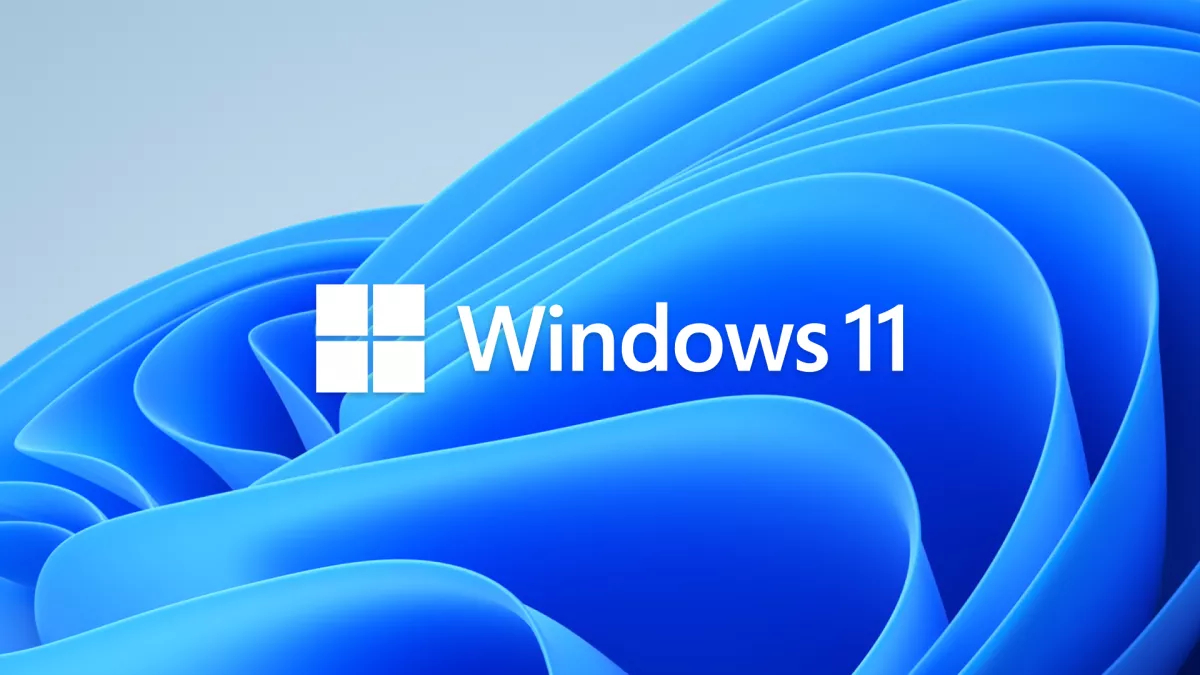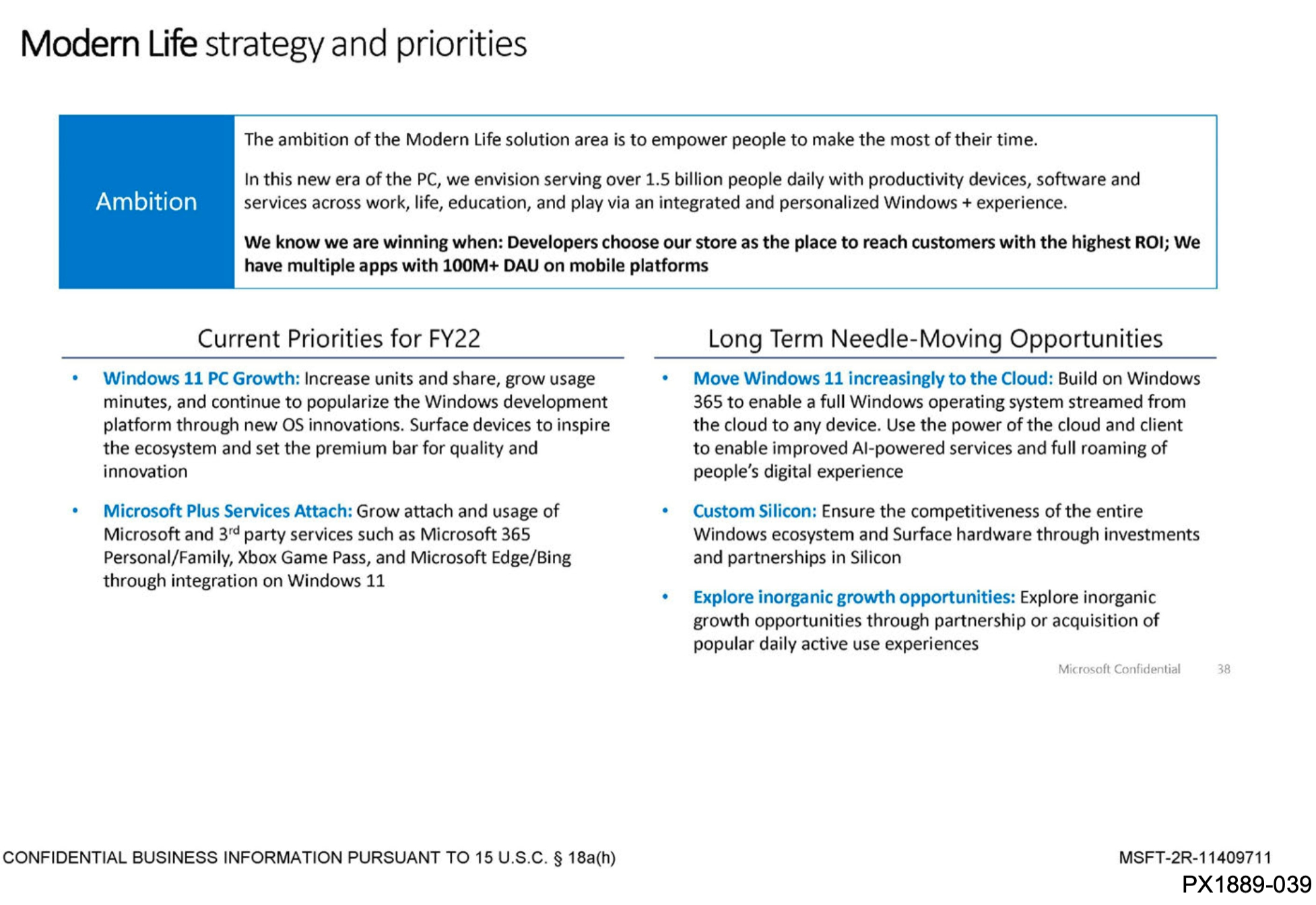Windows 11’s Potential Subscription-Based Cloud Future Revealed by FTC
Could Windows 11 and its successors follow the Office 365 subscription model?

Get Tom's Hardware's best news and in-depth reviews, straight to your inbox.
You are now subscribed
Your newsletter sign-up was successful
With so many cloud-enabled services allowing you to stream music, movies, and even games from just about any device (or browser), why can’t we do the same for operating systems? Microsoft has already dabbled into this foray with Windows 365, its cloud-based Windows virtual machine offering aimed at businesses.
With Windows 365, each user is given their own custom Windows virtual machine hosted in the Windows 365 service. Since it’s a cloud-based service, each Windows virtual machine can be accessed using a web browser or an app on Windows and Mac devices. Even more flexibility is afforded with support for iOS/iPadOS and Android devices.
So, what if Microsoft extended the capabilities it currently bills to businesses on a per-user, per-month basis to general consumers? That is precisely what the Redmond, Washington-based company is envisioning, according to internal documents [PDF] made public thanks to the FTC vs. Microsoft hearing currently taking place. While the court case revolves around the FTC’s attempt to block Microsoft’s proposed $68.7 billion acquisition of Activision-Blizzard, ancillary details about the company’s business units have also come to light.
As first reported by The Verge, an internal Microsoft presentation entitled “Modern Life Strategies and Priorities” talks about the company’s ambition to “empower people to make the most of their time.” Microsoft also talks about its goal to serve in excess of 1.5 billion people daily across its software platforms.
The presentation, dated June 2022, also reveals that one of Microsoft’s long-term goals is to use the foundation it created with Windows 365 to “enable a full Windows operating system streamed from the cloud to any device.” By shifting Windows to the cloud, Microsoft says it will leverage the “power of the cloud and client to enable improved AI-powered services and full roaming of people’s digital experience.”
The idea of a fully “in the cloud” Windows for consumers may have seemed far-fetched a decade ago, but Microsoft has already eased its customers into such a transition. Office has been one of Microsoft’s big tentpole applications for decades in corporate and home settings. With Office 365, Microsoft moved from a monolithic software application that saw a new release every one to two years to a software-as-a-service model where customers pay a monthly or yearly subscription to access cloud-backed Office apps like Word, Excel and PowerPoint.
This subscription model means reliable, recurring revenue for Microsoft versus a one-time purchase that customers may choose to keep for years without upgrading. Transitioning Windows to this model seemed inevitable for a large, mature company like Microsoft that is perennially tasked with adopting clever ways to increase revenue.
Get Tom's Hardware's best news and in-depth reviews, straight to your inbox.
Perhaps one of the first steps in Microsoft’s Windows 11 in the cloud model is Windows 365 Boot. This feature was announced a month ago and allows users to boot directly into an Azure-based cloud PC instance without first logging into their local Windows 11 install. Windows 365 Boot is currently available in Windows 11 22H2.
Elsewhere in the slide, Microsoft talked about its desire to bolster both its Windows software and Surface hardware business by investing heavily in silicon partnerships. Microsoft already partners with Qualcomm on custom Arm chips for its Surface Pro X convertibles, and the company is actively recruiting senior project engineers for the “Microsoft Silicon Team.”

Brandon Hill is a senior editor at Tom's Hardware. He has written about PC and Mac tech since the late 1990s with bylines at AnandTech, DailyTech, and Hot Hardware. When he is not consuming copious amounts of tech news, he can be found enjoying the NC mountains or the beach with his wife and two sons.
-
brandonjclark If Microsoft goes to a subscription-based model, expect many (but not most) people to find the following link useful.Reply
https://store.steampowered.com/linux -
Kamen Rider Blade People are "Sick & Tired" of subscriptions and prefer the old school, pay once for each version upgrade model.Reply
If you're not down with that, the customers will move onto another software that will support that model. -
BillyBuerger While the subscription model works great from a business standpoint, it seems stupid for individuals. I was more than happy to move our business office licenses to O365. It's much easier to manage licenses that way as opposed to individual product keys or volume licenses. Volume licensing wouldn't have been bad but we were a relatively small company at the time and volume licensing has it's own headaches. I could see something like this for Windows at some point for our business but I don't expect to do that yet. Might be worth looking into some time but I expect certain things we need would not play well. Especially related to disconnected work as some people are not "always connected". Heck, just getting a good connection to Teams sometimes is difficult.Reply
But, this is all stupid for individual consumers. I still expect to buy my stuff and then use it until it's too old. I don't need to pay a subscription on top of that. And while game streaming is a thing, it's not perfect so "streaming" your whole OS is still a ways out. Not all of us have 1Gb internet connections either. And even so, where's the advantage to the user for this? Management of 100s or 1000s of systems for a business makes this all useful. Management of a couple of devices for a single home, not that big of a deal. But the cost of these subscriptions is. -
crobob If MS does this I would drop them in a NY minute. MS messes up usually every other release. Can you imagine being locked into Windows BOB, Me or 8. Anyone forcing a subscription for software gets dropped. Dropped Quicken, which I had used for 20+ years, when they pulled that stunt.Reply -
ezst036 Reply
I disagree.brandonjclark said:If Microsoft goes to a subscription-based model, expect many (but not most) people to find the following link useful.
https://store.steampowered.com/linux
Microsoft will transform Windows into a subscription operating system.
Most of you people will pay it. -
sadsteve Figured this was going to be Microsofts route after they started the Office subscription. Pretty much why I'm now using Linux as my main OS. I run a Windows VM for gaming and the occasional photo editing session (I really dislike Gimp!).Reply -
Giroro Microsoft wants to steal the hardware you buy, so they can "infinite money forever" in rent it to use it, on top of how One Drive is designed to hold your data ransom.Reply -
ikjadoon All the ways Microsoft will use this to pump their quarterly revenue and screw users:Reply
Hike the subscription price so booting your cloud PC costs 2x as much as last month.
Want to leave? All your programs, documents, and OS are locked up. Pay a $100 egress fee to download the data.
Forced updates to throw in more ads to File Explorer. Thought paying a subscription stopped ads? Get real.
Whoops, only Edge can be used. “We don’t trust third-party browsers in our cloud.” Hope you like the fifth sidebar added this week.
It’ll still be offline once or twice a week while it updates. No, it won’t update in the background.
Need more RAM? Here, pay an extra $15 a month for the rest of your life. No, you don’t pay market rates; you pay Nadella rates! -
ikjadoon Replyezst036 said:I disagree.
Microsoft will transform Windows into a subscription operating system.
Most of you people will pay it.
LMAO, as if Windows hasn’t been losing market share every year since the mid-2000s.
https://gs.statcounter.com/os-market-share/desktop/worldwide
In a year, less than 60% of consumer desktops and laptops will run Windows.
People that prefer a consumer-first local OS moved to Mac and there, you can pay Tim Cook prices for RAM.
//
Wait for the day when all Activision and Blizzard games only run on Cloud PC. Somehow, people think this merger is a good idea, lmao. “Save Activision! Give them billions: that’ll teach them!” -
Lafong Replyikjadoon said:LMAO, as if Windows hasn’t been losing market share every year since the mid-2000s.
https://gs.statcounter.com/os-market-share/desktop/worldwide
In a year, less than 60% of consumer desktops and laptops will run Windows.
People that prefer a consumer-first local OS moved to Mac and there, you can pay Tim Cook prices for RAM.
//
Wait for the day when all Activision and Blizzard games only run on Cloud PC. Somehow, people think this merger is a good idea, lmao. “Save Activision! Give them billions: that’ll teach them!”ezst036 said:I disagree.
Microsoft will transform Windows into a subscription operating system.
Most of you people will pay it.
I think you are correct, although I wish you weren't.
I remember hearing in 1997 that Linux was "about ready for the desktop". As far as I know, it is still under 5%.
I read 6 or 8 years ago that Microsoft had trademarked (copyrighted?) some specific terminology that strongly implied that they had subscriptions in mind for Windows.
For the life of me, I cannot recall what that term was.
How does "Windows 365" roll off your tongue?
